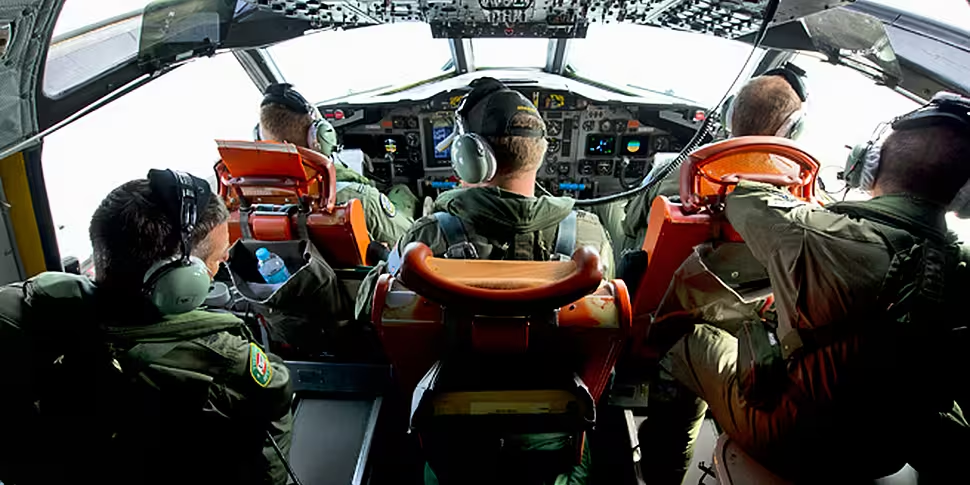A new report has failed to shed much new light on the fate of missing flight MH 370.
It is exactly 12 months since the Malaysia Airlines plane went missing.
The report does reveal a battery on one of the jet's black boxes - which allows it to send 'pings' - expired a year before the jet disappeared.
But former pilot Alastair Rosenschein does not think it will have hindered the search operation that much:
Relatives of those on board the flight have reacted with frustration to the report:
Martin Dolan, chief commissioner of the Australian Transport Safety Board (ATSB), the organisation coordinating the search in the Southern Ocean, told Sky News that while he was once "cautiously optimistic" he is now "less cautious and more optimistic".
His comments came on the first anniversary of the loss of the Malaysia Airlines Boeing 777 en route from Kuala Lumpur to Beijing.
An interim report into the plane's disappearance says it traveled in a southerly direction for eight hours until it ran out of fuel in the Indian Ocean, west of Australia.
"I am confident that if the aircraft is in the area we are searching, we will find it, and I have a high degree of confidence but not certainty about the satellite data and the calculations that an international group of experts has come to," Mr Dolan told Sky News.
"I have said previously that I am 'cautiously optimistic'. Because we now know the capacity of our search teams... and we haven't been able to see any flaws in our analysis, I am less cautious than I was; more optimistic but again, I can't guarantee we will get an outcome although we are confident that is the case.
Main points from the report:
- The underwater locator beacon battery had expired in December 2012, a year before the plane disappeared. The significance of this was not apparent but it would mean that searchers may have a lesser chance of finding the plane, even if they were in its vicinity. However, the report adds: "There is some extra margin in the design to account for battery life variability and ensure that the unit will meet the minimum requirement."
- "However, once beyond the expiry date, the (battery's) effectiveness decreases so it may operate, for a reduced time period until it finally discharges," the report said. While it is possible the battery will operate past the expiry date, "it is not guaranteed that it will work or that it would meet the 30-day minimum requirement," said the report.
- There was nothing unusual or concerning in the health, financial affairs or behaviour of the pilots and crew
- The plane's right wing had been damaged in Shanghai in 2012 and repaired by Boeing. It had gained its most recent certificate of airworthiness in May 2013, when a flaperon inboard seal needed to be replaced. There were no other issues.
- There were no significant clouds at the last civil radar point, no lightning, no significant weather phenomena
- The report has details of the consignment of batteries being carried onboard the plane - Motorola batteries made in Malaysia. The report says that, while they were inspected, they didn't go through additional security screening. The batteries are allowed on flights.
The focus is an extremely challenging search of the sea bed within a 'priority search area' determined by further satellite analysis.
Currently, four ships from the Dutch firm Fugro are scanning a mountainous 60,000 sq km seabed.
Each of the four ships in the search area has a crew of about 30.
Three of the vessels are dragging sophisticated sonar devices just above the seabed, scanning for wreckage. This represents a significant challenge because of the rugged mountainous nature of the seabed.
The fourth vessel is using a remote-controlled unmanned submarine which can manoeuvre more easily along the seabed.
Mr Dolan praised the work of the teams on board the vessels.
"One of the things that really motivates them is that they understand that the families of the 239 people on board the aircraft are looking for and deserve answers," he said.
Originally posted at 9.18am









